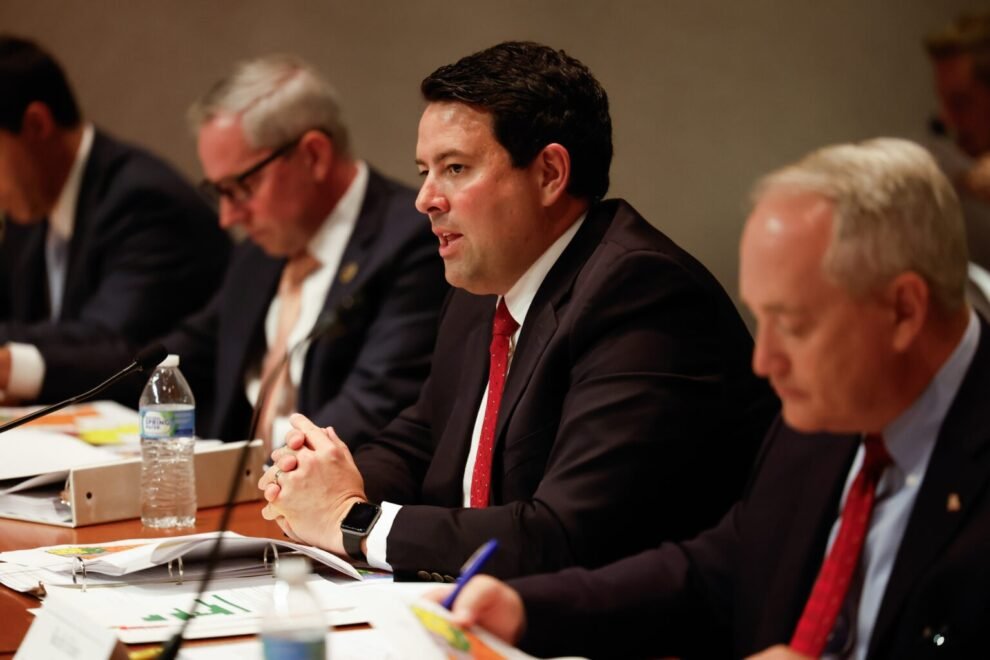Republican members of the Ohio Redistricting Commission say Statehouse district map challengers don’t have a leg to stand on, even alleging the groups want gerrymandering themselves.
The commission members responded in court filings to a challenge of new General Assembly maps, which were passed unanimously at the end of September by the commission. Anti-gerrymandering groups claim the map is unconstitutional, due to inappropriate partisan leans in statehouse districts.
In asking the court to reject the challenge, state Rep. Jeff LaRe, R-Violet Twp., and state Sen. Rob McColley, R-Napoleon, argued the Ohio Constitution “focuses the General Assembly redistricting process on geographic inputs, rather than political outputs.”
The “geographic anti-gerrymandering provisions,” as the two legislators phrase it in their brief, “ensure that people who live together will vote together.”
“That is why the mandatory provisions of Article XI — the things the Commission “shall” do in Sections 2, 3, 4, 5, and 7 — make counties, municipalities, and townships the fundamental building blocks of Ohio House districts, and House districts then form the fundamental building blocks of Ohio Senate districts,” attorneys for LaRe and McColley wrote.
Section 6, the provision notably skipped as a “mandatory provision” in LaRe and McColley’s brief, directs the commission to “attempt” to draw general assembly maps, which “shall be drawn primarily to favor or disfavor a political party,” and have a “statewide proportion of districts” that matches partisan results of elections in the last 10 years.
In past attempts, members of the Ohio Redistricting Commission, specifically Senate President Matt Huffman and former House Speaker Bob Cupp, called Section 6 of Article XI “aspirational.” Attorneys in previous map challenges said the words “shall attempt” made the section “a carrot and stick” method to drive bipartisanship.
That legal argument came up again, as LaRe and McColley said the constitutional amendment “incentivizes the two major political parties to negotiate and compromise by ensuring a redistricting plan that garners bipartisan support is effective through the next decennial census.”
Because map challengers “have neither alleged nor identified” violations of the sections LaRe and McColley deemed “the mandatory provisions,” their challenge can’t stand, the brief claims.
“Without a violation of any of those sections, the Court lacks jurisdiction to hear the objections in the first place,” according to the court document.
They also argue the fact that an election was conducted with a previous map, which was deemed unconstitutional by the Ohio Supreme Court, and the use of that map “demonstrated that the objectors’ purportedly perfect proportional plan was illusory.”
What they say map challengers are truly looking for, is “the most aggressive partisan district manipulation favoring Democrats and disfavoring Republicans.”
“In short, objectors continue to demand the very thing they accuse the commission of, that is ‘gerrymandering,’” attorneys for LaRe and McColley stated in the court brief.
The fact that both Democratic members of the commission voted along with the rest of the commission, all Republicans, “demonstrates that the anti-gerrymandering provision” of the redistricting constitutional regulations “functioned as designed so as to avoid the need to adopt a plan pursuant to the impasse provisions,” and means the maps will be in effect through 2030, LaRe and McColley argued.
The Democrats, however, filed their support for anti-gerrymandering advocates to be able to challenge the maps.
House Minority Leader Allison Russo and Senate Minority Leader Nickie Antonio gave the court a separate one-page filing, saying they “agree” that challengers should be allowed to make their arguments against the statehouse districts.
The other members of the commission, Gov. Mike DeWine, Auditor of State Keith Faber and Secretary of State Frank LaRose, were represented by Ohio Attorney General Dave Yost, who also represents the commission as a whole.
In his filing, Yost said the rest of the Republican statewide officeholder commission members concurred with LaRe and McColley’s arguments against the district challenges.
Source : OCJ












